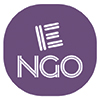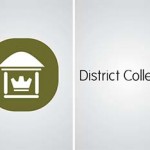 e-Business & Financial Inclusion
e-Business & Financial Inclusion
This category recognizes purposeful contributions of electronic and digital medium in achieving efficiencies in business processes and creating new business models in e-commerce. It supports and optimizes business processes across business-to-business, business to consumers, Internet security and other areas. e-business becomes inclusive if it specifically enables small micro and medium enterprises. E-business is also about entrepreneurs who use new media to innovate business opportunities and practices. Financial inclusion considers the best effort in the area of digital, financial and social inclusion to provide financial security and better financial managementncluding offering reach of banking to the doors of masses.
 Community Broadcasting
Community Broadcasting
This category recognizes achievements of community media and community broadcasting stations including community radio, their programs, initiatives or practices especially in rural India that increases the station’s capabilities or improves the services offered by them to their community. It includes: excellence in community participation, best digital media initiative, radio programs – talks, music; contribution to indigenous broadcasting and excellence in ethnic and multicultural broadcasting.
 e-Culture and Tourism
e-Culture and Tourism
This category recognizes use of new media and technology tools to enhance cross cultural exchange and knowledge sharing for developing better relations within national boundaries and across nations. Culture and tourism helps in improving local economy along with new digital media, which ensures wider outreach. Broadly this category entails the use of ICT and digital media tools in developing excellent content and services around culture and tourism. It also demonstrates tools that provide cultural preservation, cultural integration, diversity and better processes for tourism.
 e-Education, Learning & Employment
e-Education, Learning & Employment
This category recognizes the use of information communication technology, digital applications, digital devices, and social media in achieving excellence in education and learning at various levels such as schools, colleges, universities, and vocation. It recognizes efficient education process which use ICT to generate employment at all levels.
 e-Agriculture and Ecology
e-Agriculture and Ecology
This category recognizes purposeful contributions made by individuals, institutions, organisations, government agencies and enterprises in the field of agriculture. It is a platform for best practices in agriculture, which offers large community benefits. It recognises e-content in environmental excellence in Asian countries. The category also considers individuals, business, and organizations that have shown leadership, innovation, or extraordinary service in protecting, improving, or cleaning up the environment and helps in better ecological balance.
 e-Governance
e-Governance
This category recognizes good governance through efficient system and transparency. It identifies ventures which deliver content rich solutions from administrations to the public including individuals, businesses and organisations and to significantly improve service depth and quality as well as democratic processes; strengthens public policies, fosters efficiency of information exchange, increases transparency and facilitates participation of citizens and public services clients; using public access to data for innovative products and services on a commercial or non-commercial basis. e-governance recognises all such initiatives where government efficiencies have been achieved and governance targets accomplished across sector, geography, departments and ministries.
 e-Health
e-Health
E-health recognizes applications and initiatives that provide solutions related to health through the use of ICT and digital tools. For example, a consumer-centered model of health care where stakeholders collaborate using Information Communication Technology includes use of Internet to manage health issues as well as health care system. It also considers all aspects of mobile healthcare, from lifestyle and health coaching, decentralised access to healthcare and remote diagnosis solutions, to chronic disease management, healthcare monitoring and treatment compliance. Initiatives can vary from e-health products, devices, solutions, services and applications.
 e-Inclusion & Localisation
e-Inclusion & Localisation
E-inclusion recognises and encourages those initiatives where digital tools, applications, and information communication technologies are used for making many excluded societies and communities inclusive and at the same level like many others. It also considers exemplary use of technology for the disadvantaged groups of the community and raises public awareness on digital inclusion. e-localisation is about those applications and initiatives, which use ICT tools to work in the language of the users and communities for example non-English speaking community. Interventions of ICT has been instrumental in empowering life at the grassroots level in many ways such as application in local languages, vernacular content and digital tools to enable people who work and communicate in local languages including oral medium.
 e-News & Journalism
e-News & Journalism
This category recognizes initiatives which encourage production and broadcast of appropriate online, TV and radio products against racism and right wing extremism, as well as strengthens training and education in community media. E-News and journalism strongly encourages efforts of alternative voice and use of alternative mediums. It also expands traditional media into new media and leverages technology as a medium to reach larger masses, offering content in local language and in all form of electronic and digital mediums.
 e-Entertainment & Games
e-Entertainment & Games
The category recognizes innovative projects in the field of creative content development for entertainment and infotainment. It looks at innovation Supplying digitized entertainment products (like games) and services; entertaining the user in this world’s variety of languages and its cultural diversity; supporting movement from one-way to two-way, from single to multiple players, interactive entertainment and the synergy between analog and digital platforms.
 e-Science & Technology
e-Science & Technology
This category recognises the crucial role of science and technology in the innovation process with use of Information Communication Technology applications. It considers scientific projects articulated through new media, use of ICT applications in the field of science or by Science departments, institutes etc. offering real time experimentation using ICT, especially online. Wireless application and widespread use of advanced ICT to achieve innovation objectives comes under this category.
 e-Women & Empowerment
e-Women & Empowerment
e-women & empowerment recognises projects and innovations that exclusively targets women and their need and cause and provides solutions to issues pertinent to women. The category particularly identifies how ICT and digital tools could empower women.
 Social Media
Social MediaThis category recognizes purposeful contributions made by individuals, institutions, organisations, government agencies and enterprises through social media initiatives. It is a platform for best social media practices for community benefits. The category aims at engaging and building community in a progressive way.
 eNGO
eNGO The eNGO category recognizes NGOs who are using Information Communication Technology (ICT) and digital media for good governance practices and benefit of the societies and communities at large. The Challenge seeks to recognize and honour best NGO practices from South West India.
 District Collector Digital Champion Award
District Collector Digital Champion AwardThe Award recognizes, and encourages the further dissemination of the ICT practices and implements ICT at large to break the traditional mode of public delivery mechanisms in day-to-day governance. The purpose is to recognize champions in district collectors of South West India who are using ICT practices to empower citizens, serve public services clients and strengthen participation of citizens in decision-making.

 Previous Post
Previous Post Next Post
Next Post